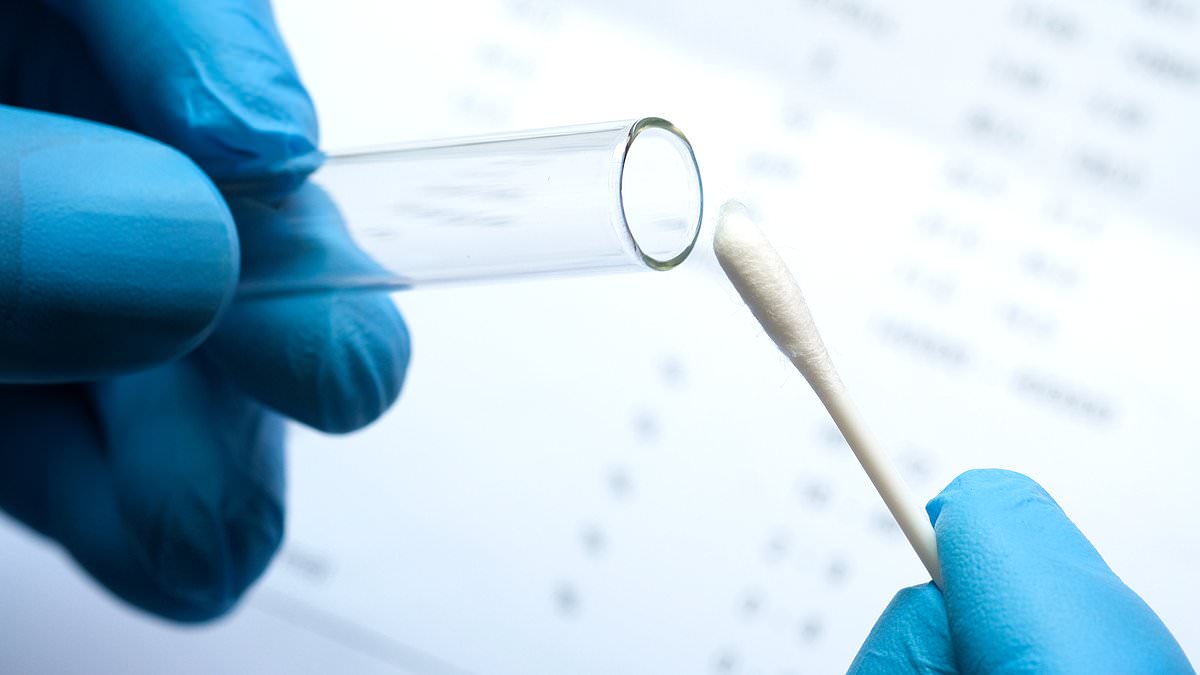A rape support charity has raised ‘serious concerns’ over self-swab ‘rape kits’ being marketed to UK university students.
The kits mean people who have been sexually assaulted or raped can swab themselves and ship it to a lab so the DNA of an alleged attacker can be tested.
Some of the samples can be stored and frozen for up to two decades, and if police are later notified of an incident it can be given to a respective force.
In recent months, these kits have now been shared with students across UK universities.
Companies have said such kits provide victims a simpler way to report rape, while also saying they act as a deterrent.
But Rape Crisis England and Wales have issued a stark warning, while raising several concerns with the way the rape kits functioned.
In a statement via their website, it cited fears the kits gave victims ‘false hope’ as self-collected evidence might not hold up in criminal court.
‘Although a self-swab kit might seem like a good idea, evidence collection needs to be done in a safe and legally compliant way for it to have most use in criminal trials,’ it said.
‘There is far more evidence than DNA which is relevant in a situation where a survivor chooses to pursue criminal justice, and which can and should be collected if that’s the right option for her.
‘At-home kits can’t offer that level of protection and may give survivors false hope that any evidence they gather could be relied on in a criminal trial.’
Evidence is made reliable when it is carried out in professional forensic medical examinations, where the area is controlled and forensically cleaned to avoid contamination, according to the charity.
And unlike medical examinations, self-swab kits can’t collect all evidence needed, including, injuries, clothing, blood samples and medical findings.
While the kits are able to collect DNA evidence, Rape Crisis also said its rarely used in trails and can’t prove any interaction was non-consensual.
‘More importantly, survivors need specialist, trauma-informed support to help them understand their options in the short, medium and longer term after rape or any form of sexual abuse,’ it said.
They also have a low conviction rate for rape, with five of six victims in the UK opting not to report a sexual assault.
Last year, 2.7 percent of the 71,227 rapes recorded by police ended in perpetrators being charged.
Firms selling the self-swab ‘rape’ kits said they give victims of sexual assault a ‘simpler, easier way to report and create real deterrence’.
Enough, a firm selling such kits for £20 online and has been giving them to University of Bristol students for free, said their aim ‘is deterrence not immediate criminal justice’.
The company claimed 70 percent of university students they surveyed at Bristol said the kits had prevented acts of sexual violence on campus.
In the last half-a-year, more than 200 reports were made, the not-for profit claimed, with 90 percent of Bristol students saying they were aware of Enough, the firm told The Independent.
Katie White, the Enough co-founder said: ‘Survivors are asking for Enough. The most common question they ask is “how does this not already exist?” They thank Enough for stopping young women being raped.’
On their website, it encouraged survivors to report the incident to police or to attend a SARC first, so they can get a full forensic examination.
It also said while their kits were made by the same forensic experts who make them for the police, there was no guarantee self-collected evidence would be admissible in court.
It comes after the Faculty of Forensic and Legal Medicine and Rape Crisis issued a statement last year saying they did not support the kits.
They said it could ‘put survivors at risk’ if they weren’t informed with the correct knowledge.
